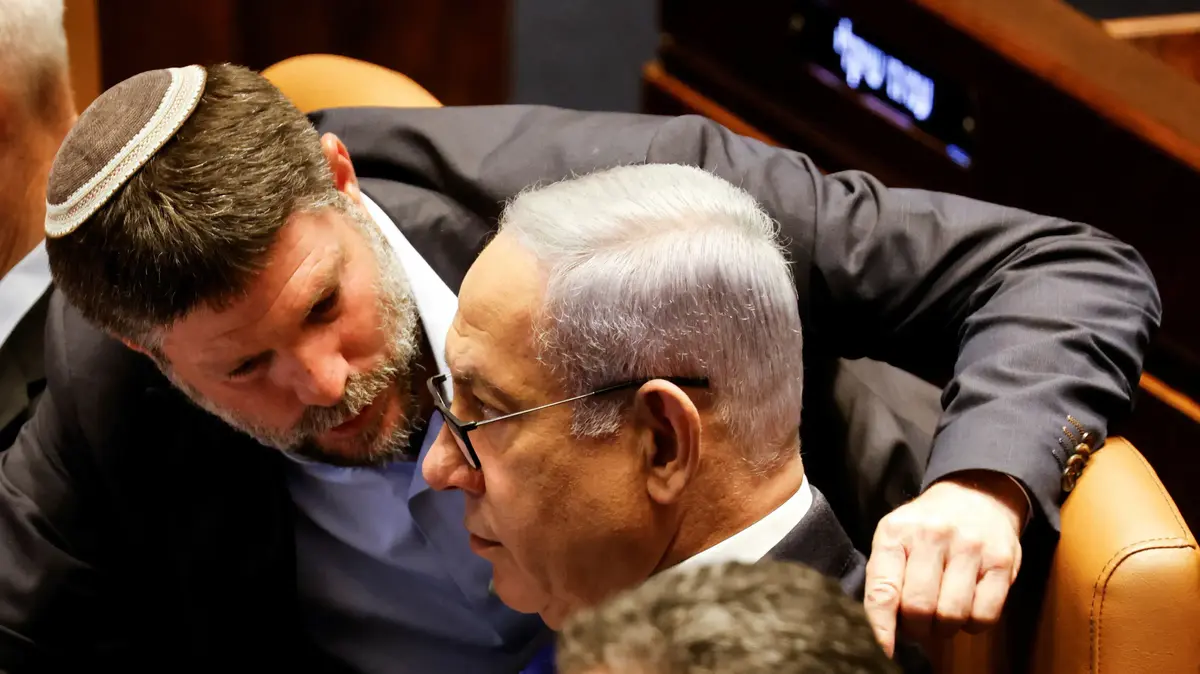Smotrich and Ben Gvir Oppose Proposed Truce with Hamas
Prime Minister Binyamin Netanyahu engaged in crucial talks with Religious Zionist Chairman Bezalel Smotrich and Otzma Yehudit Chairman Itamar Ben Gvir on the issue of the proposed truce with Hamas. According to sources briefed on the discussions, Netanyahu urged both leaders to refrain from issuing hasty statements regarding the truce outlined by US President Joe Biden. However, within an hour and a half, both Smotrich and Ben Gvir made public declarations threatening to dissolve the government if the truce is accepted.
Smotrich firmly stated, 'I will not be part of a government that will agree to the proposed outline and end the war without destroying Hamas and returning all the abductees.' He emphasized the necessity of continuing the fighting until Hamas is destroyed, abductees are returned, and a new security reality is established in both Gaza and Lebanon. Additionally, he called for the return of residents to conflict-affected areas and significant investment in their development.
Ben Gvir echoed Smotrich’s sentiments, labeling the truce as a 'promiscuous deal' that signifies an 'absolute defeat' rather than victory. He insisted on the total elimination of Hamas as a precondition for any truce and warned that Otzma Yehudit would withdraw from the coalition if the proposed terms were accepted.
The opposition from Smotrich and Ben Gvir places Netanyahu's government in a precarious position as it navigates the complex demands of national security, international diplomacy, and internal party politics.
- The proposed truce by Biden aims to end the ongoing hostilities between Israel and Hamas, which have resulted in significant loss of life and displacement on both sides. The international community, including the United States, has been pushing for a resolution to the conflict, emphasizing humanitarian concerns and the need for a sustainable peace.
- The insistence by Israeli hardliners on the total annihilation of Hamas highlights the deep-seated divisions within the Israeli political landscape. These divisions pose challenges to forming a unified approach to the conflict and achieving long-term peace in the region.






